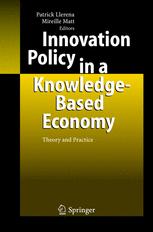

Most ebook files are in PDF format, so you can easily read them using various software such as Foxit Reader or directly on the Google Chrome browser.
Some ebook files are released by publishers in other formats such as .awz, .mobi, .epub, .fb2, etc. You may need to install specific software to read these formats on mobile/PC, such as Calibre.
Please read the tutorial at this link: https://ebookbell.com/faq
We offer FREE conversion to the popular formats you request; however, this may take some time. Therefore, right after payment, please email us, and we will try to provide the service as quickly as possible.
For some exceptional file formats or broken links (if any), please refrain from opening any disputes. Instead, email us first, and we will try to assist within a maximum of 6 hours.
EbookBell Team

5.0
48 reviewsPatrick Llerena and Mireille Matt BETA, Strasbourg, E-mail: pllerena@coumot. u-strasbg. fr BETA, Strasbourg, E-mail: matt@coumot. u-strasbg. fr 0. 1 Why Analyze Innovation Policies From a Knowledge- Based Perspective? It is broadly accepted that we have moved (or are moving) to a knowled- based economy, characterized at least by two main features: that knowl edge is a major factor in economic growth, and innovation processes are systemic by nature. It is not surprising that this change in the economic paradigm requires new analytical foundations for innovation policies. One of the purposes of this book is to make suggestions as to what they should include. Underpinning all the chapters in this book is a conviction of the impor tance of dynamic and systemic approaches to innovation policy. Nelson (1959)^ and Arrow (1962)^ saw innovation and the creation of new knowl edge as the emergence and the diffusion of new information, characterized essentially as a public good. The more recent theoretical literature regarded the rationale for innovation policies as being to provide solutions to "mar ket failures". Today, however, knowledge is seen as multidimensional (tacit vs. codified) and open to interpretation. Acknowledging that the creation, coordination and diffusion of knowledge are dynamic and cumu lative processes, and that innovation processes result from the coordination of distributed knowledge, renders the "market failure" view of innovation policies obsolete. Innovation policies must be systemic and dynamic.